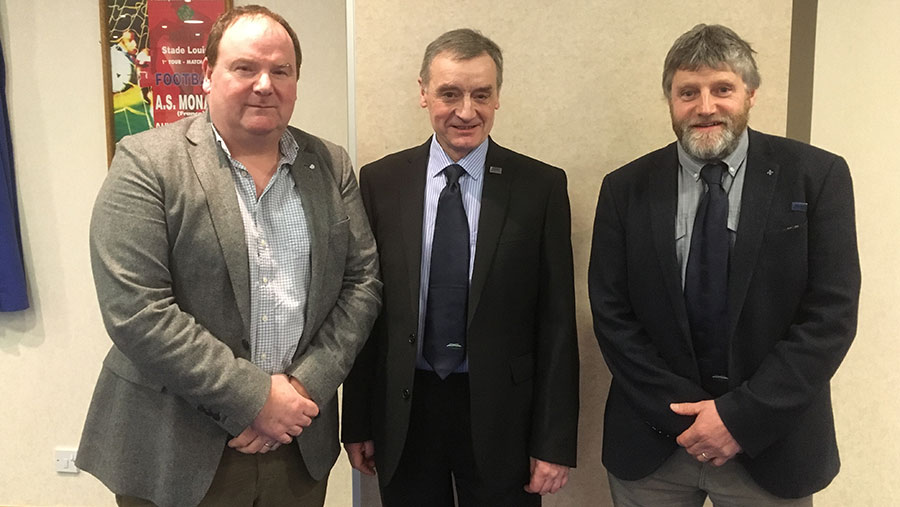Candidates jockey for position in NFU Scotland hustings
 From left, Ian Sands, Charlie Adam and Martin Kennedy
From left, Ian Sands, Charlie Adam and Martin Kennedy Cuts to support in less-favoured areas, labour availability and countering the anti-farming lobby all joined Brexit under the spotlight as the hustings for the NFU Scotland elections got under way this week.
The three candidates seeking election to the union’s two vice-presidential posts are:
- Aberdeenshire livestock farmer, Charlie Adam, who has been chairman of the livestock committee for the past four years
- Perthshire grower Ian Sands, who has served a similar term at the head of the combinable crops committee
- Aberfeldy hill farmer Martin Kennedy, union vice-president for the past two years.
Kicking off the first in a series of nine meetings, all three candidates promised to fight ”tooth and nail” to ensure that the swingeing cuts threatened to the Less Favoured Area Support Scheme’s (LFASS) £65m budget were mitigated.
See also: Scots ‘lifeline’ support cut risks land abandonment
Mr Kennedy said the support was crucial in maintaining the viability of livestock production in one of Europe’s most disadvantaged areas – adding that Scotland had never been in the EU’s sights when the change to Areas of Natural Constraint (ANC) had been enforced.
“Any cut in the LFASS payments is absolutely not acceptable. Ways exist to mitigate the reductions – we just need to ensure the political will is there.”
True message
Similar agreement was voiced on countering the anti-farming lobby, with Mr Adam stating that getting the true message across to the public was key and that it was crucial that consumers realised Scottish produce was among the most welfare- and environmentally friendly in the world:
“Beef produced in Brazil has around three times the emissions of our own and requires about 10 times as much land. We need to make sure that meat eaters know the facts – and choose ours.”
With many sectors likely to face serious labour shortages in the future due to Brexit, Mr Sands said that a realistic seasonal agricultural workers scheme (Saws) should be introduced this year:
“In the past, the Saws schemes worked to ensure that labour was available for the soft fruit industry and other sectors, with workers coming in for a short spell then returning home. It worked before and with such regulation it wouldn’t be a hard sell for the politicians now.”
